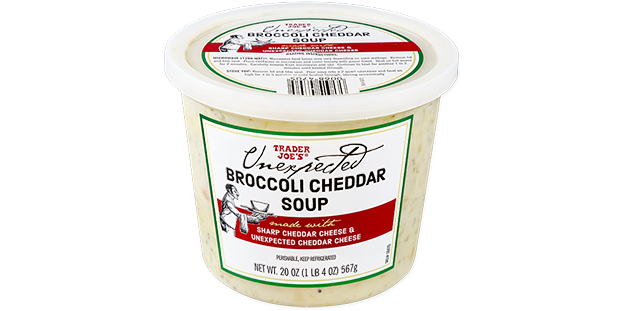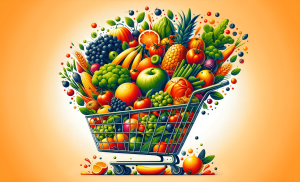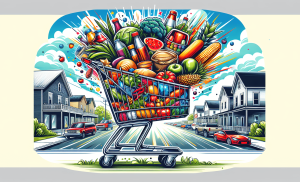Exploring Trader Joe’s Food Safety Policies
Have you ever wondered about the measures taken by Trader Joe’s to ensure the safety of their food products? In this article, we will explore Trader Joe’s food safety policies and practices to gain a deeper understanding of how they prioritize the well-being of their customers. From their rigorous supplier selection process to their comprehensive testing procedures, Trader Joe’s leaves no stone unturned when it comes to delivering high-quality and safe food options. So, grab a snack and get ready to dive into the world of Trader Joe’s food safety!

Trader Joe’s Food Safety Policies
Overview of Trader Joe’s
Trader Joe’s is a popular grocery store chain that is well-known for its unique and high-quality products. With over 500 stores across the United States, Trader Joe’s has successfully made a name for itself in the food retail industry. One of the key factors contributing to its success is its strong commitment to food safety.
Importance of Food Safety Policies
Food safety is of paramount importance in any food retail establishment, and Trader Joe’s recognizes this significance. Ensuring that their products are safe for consumption not only protects the health and well-being of their customers but also maintains the trust and loyalty of their shoppers. By adhering to strict food safety policies, Trader Joe’s aims to provide customers with a worry-free shopping experience.
Commitment to Food Safety
Trader Joe’s is dedicated to maintaining the highest standards of food safety. They have implemented comprehensive policies and practices throughout their supply chain to safeguard the quality and integrity of their products. From selecting reputable suppliers to implementing rigorous quality control measures, Trader Joe’s leaves no stone unturned in their commitment to ensuring the safety of their food products.
Quality Control and Assurance Measures
Supplier Selection
Trader Joe’s understands that the first step in ensuring food safety begins with selecting reliable suppliers. They carefully vet and choose suppliers who follow strict quality and safety standards. These suppliers must demonstrate compliance with local and federal regulations, as well as provide necessary documentation to support their claims of product quality and safety.
Inspections and Audits
As part of their quality control measures, Trader Joe’s conducts regular inspections and audits of their supplier facilities. Their team of expert auditors assesses each supplier’s adherence to food safety regulations, facility cleanliness, storage practices, and adherence to standard operating procedures. These inspections and audits help Trader Joe’s identify any potential risks or areas for improvement to maintain the highest standards of food safety.
Product Testing
Trader Joe’s places a significant emphasis on product testing to ensure the safety and quality of their food items. They employ a rigorous testing program that includes microbiological, allergen, and chemical analysis on a regular basis. By conducting thorough and comprehensive product testing, Trader Joe’s can detect any potential contaminants or hazards and take appropriate action to mitigate risks.
Product Handling and Storage
Receiving and Unloading
Trader Joe’s pays great attention to detail when it comes to the receiving and unloading of their products. All incoming shipments undergo a thorough inspection to ensure that they meet quality and safety standards. Trader Joe’s employees carefully examine each shipment, checking for any signs of damage or temperature abuse that could compromise the safety of the products.
Proper Storage
Maintaining proper storage conditions is crucial for preserving the quality and safety of food products. Trader Joe’s follows strict protocols when it comes to storing their products. They have designated storage areas for different types of products, ensuring that they are stored at the appropriate temperature and away from any potential sources of contamination.
Temperature Control
Maintaining proper temperature control is essential for preventing the growth of harmful bacteria and ensuring the safety of perishable food items. Trader Joe’s utilizes state-of-the-art refrigeration and temperature monitoring systems in their stores and distribution centers. This enables them to closely monitor and control the temperature at every stage of the supply chain, guaranteeing that their products are stored and transported under optimal conditions.
Sanitation Practices
Cleaning and Disinfection
Trader Joe’s places a strong emphasis on maintaining clean and sanitary store environments. They have strict cleaning and disinfection protocols in place to ensure that all areas, including high-touch surfaces, receive regular and thorough cleaning. This helps mitigate the risk of cross-contamination and maintain a safe shopping environment for customers.
Food Contact Surfaces
Properly cleaning and sanitizing food contact surfaces is crucial for preventing the spread of foodborne illnesses. Trader Joe’s ensures that all food contact surfaces, such as countertops, cutting boards, and utensils, are regularly cleaned and sanitized following appropriate procedures. This helps eliminate any potential sources of contamination and ensures the safety of their food products.
Employee Hygiene
Trader Joe’s understands the importance of maintaining high standards of employee hygiene to prevent the spread of foodborne pathogens. They have established strict hygiene protocols for their employees, including regular handwashing, the use of gloves when handling food, and the prohibition of jewelry and other potential sources of contamination. By prioritizing employee hygiene, Trader Joe’s demonstrates their commitment to food safety.

Allergen Management
Supplier Communication
Being aware of potential allergens in food products is crucial for the safety of individuals with food allergies. Trader Joe’s maintains open and transparent communication with their suppliers to ensure accurate allergen labeling and information. They work closely with their suppliers to obtain detailed information about potential allergens in their products to inform their customers and mitigate the risk of allergic reactions.
Prevention of Cross-Contamination
Preventing cross-contamination is a top priority for Trader Joe’s. They implement stringent protocols to ensure that products containing allergens are stored, displayed, and handled separately from other products. By preventing cross-contact between allergenic and non-allergenic foods, Trader Joe’s reduces the risk of accidental exposure to allergens and protects the health and safety of their customers.
Labeling Requirements
Accurate and clear labeling of allergens is crucial for individuals with food allergies to make informed purchasing decisions. Trader Joe’s strictly adheres to labeling requirements set by regulatory authorities, including the disclosure of major food allergens on their product labels. They provide comprehensive and easy-to-understand information about allergenic ingredients to help customers identify and avoid potential allergens.
Recall Procedures
Traceability and Documentation
In the event of a product recall, traceability and documentation play a vital role in identifying and removing potentially affected products from the market. Trader Joe’s maintains detailed records and documentation throughout their supply chain, allowing them to trace product origins and track their movement within their network. This ensures swift and accurate identification of affected products during a recall situation.
Notification and Communication
Trader Joe’s understands the importance of prompt and effective communication during a product recall. In the event of a recall, they notify their suppliers, as well as relevant regulatory bodies, about the issue. They also provide clear and timely information to their customers through multiple channels, including in-store signage, their website, and social media platforms. This transparent communication helps customers quickly identify and return affected products.
Product Disposal
Proper disposal of recalled products is crucial to prevent their reentry into the market. Trader Joe’s ensures that all recalled products are promptly and securely removed from their stores and distribution centers. They follow appropriate disposal procedures, which may include destruction, disposal at authorized facilities, or recycling, depending on the nature of the product and any applicable regulations.

Employee Training and Certification
Food Safety Training
Trader Joe’s recognizes the importance of providing comprehensive food safety training to their employees. They have developed a robust training program that covers various aspects of food safety, including proper handling, storage, sanitation, and allergen management. Through regular training sessions and ongoing education, Trader Joe’s ensures that their employees are equipped with the knowledge and skills necessary to uphold food safety standards.
HACCP Certification
Hazard Analysis Critical Control Point (HACCP) certification is a recognized standard for ensuring food safety. Trader Joe’s has implemented HACCP principles throughout their operations to identify and control potential hazards. By obtaining HACCP certification, Trader Joe’s demonstrates their commitment to risk prevention and proactive management of food safety.
Continuing Education
Food safety practices and regulations are constantly evolving, and Trader Joe’s understands the importance of staying up-to-date with the latest industry developments. They encourage their employees to engage in continuing education programs and attend industry conferences and seminars. This commitment to ongoing education ensures that Trader Joe’s remains at the forefront of food safety practices and can continuously improve their policies and procedures.
Government Regulations and Compliance
FDA and USDA Oversight
As a food retail establishment, Trader Joe’s operates under the oversight of regulatory agencies such as the Food and Drug Administration (FDA) and the United States Department of Agriculture (USDA). They comply with all applicable regulations and standards set forth by these authorities. Trader Joe’s works closely with regulatory agencies to ensure full compliance and maintain the highest level of food safety.
Compliance with Food Safety Laws
In addition to the FDA and USDA regulations, Trader Joe’s complies with all relevant federal, state, and local food safety laws. They have internal systems in place to monitor and enforce compliance with these laws throughout their operations. Trader Joe’s actively engages in periodic self-assessments and internal audits to ensure the efficacy of their food safety policies and procedures.
Third-Party Audits
To further ensure the effectiveness of their food safety policies, Trader Joe’s voluntarily undergoes third-party audits conducted by reputable certification bodies. These audits evaluate their compliance with industry standards and benchmarks. By subjecting themselves to independent scrutiny, Trader Joe’s demonstrates their commitment to transparency and accountability in maintaining the highest standards of food safety.

Customer Feedback and Complaint Handling
Channels for Customer Feedback
Trader Joe’s values customer feedback and actively encourages customers to provide input on their experiences. They have established various channels for customers to share their feedback, including in-store suggestion boxes, a customer helpline, and online feedback forms. By providing multiple avenues for feedback, Trader Joe’s ensures that customer concerns and suggestions are heard and addressed promptly.
Investigation and Resolution
When a customer complaint or concern is received, Trader Joe’s takes immediate action to investigate the matter thoroughly. They have dedicated teams responsible for addressing customer feedback, and they prioritize quick resolution to ensure customer satisfaction. By promptly addressing and resolving customer issues, Trader Joe’s demonstrates their commitment to providing a safe and enjoyable shopping experience.
Improvement Initiatives
Trader Joe’s views customer feedback as an opportunity for continuous improvement. They analyze customer feedback to identify recurring themes or areas for improvement and develop action plans accordingly. Through regular review and evaluation, Trader Joe’s implements initiatives aimed at enhancing their food safety policies and procedures. This proactive approach demonstrates their dedication to constantly improving and meeting customer expectations.
Transparency and Communication
Public Reporting
Trader Joe’s believes in maintaining transparency with their customers and the public. They provide public reports, sharing information about their food safety policies, initiatives, and any relevant updates. These reports allow customers to stay informed and make educated decisions about the safety of Trader Joe’s products. By being transparent, Trader Joe’s builds trust and confidence among their customer base.
Consumer Education
Educating consumers on food safety is an integral part of Trader Joe’s commitment to their customers. They provide educational resources, such as brochures and online content, to raise awareness about proper food handling, storage, and allergen management. By empowering their customers with knowledge, Trader Joe’s enables them to make informed choices and prioritize their own food safety.
Collaboration with Industry
Trader Joe’s believes in the power of collaboration to drive positive change in the food retail industry. They actively participate in industry associations and collaborate with other organizations to share best practices, exchange knowledge, and collectively work towards enhancing food safety. By engaging in collaborative efforts, Trader Joe’s contributes to raising the bar for food safety standards across the industry.
In conclusion, Trader Joe’s prioritizes food safety through a comprehensive set of policies and practices. From supplier selection to product handling, sanitation practices, allergen management, recall procedures, employee training, compliance with regulations, customer feedback, and transparency, Trader Joe’s demonstrates a strong commitment to providing safe and high-quality food products to their valued customers. Through their dedication to food safety, Trader Joe’s establishes trust and confidence among their customers, making it a preferred choice for grocery shopping.







